H.E. Allou Wanyou Eugene BITI Ambassador of Côte d'Ivoire to Korea
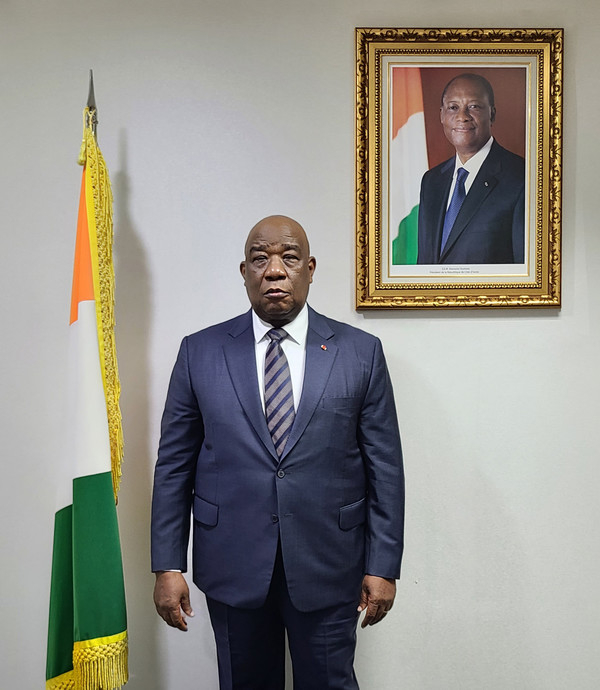
On the special occasion of the 62nd anniversary of independence of Côte d'lvoire, the Seoul City magazine interviewed H.E. Allou Wanyou Eugene BITI for his point of view on how to strengthening further the economic ties between the two countries in the years to come.
Please introduce the significance of your Independence Day, August 7th.
The national holiday translates for us the accession to full international sovereignty. This implies that since August 7, 1960, the Republic of Côte d'Ivoire has existed as a State, enjoying all its prerogatives, with political authority, population and territory. It is the fruit of the fight led by freedom-loving men and women who had a vision for Côte d'Ivoire, which they wanted to be large, prosperous, a haven of peace and hospitality, where life is good.
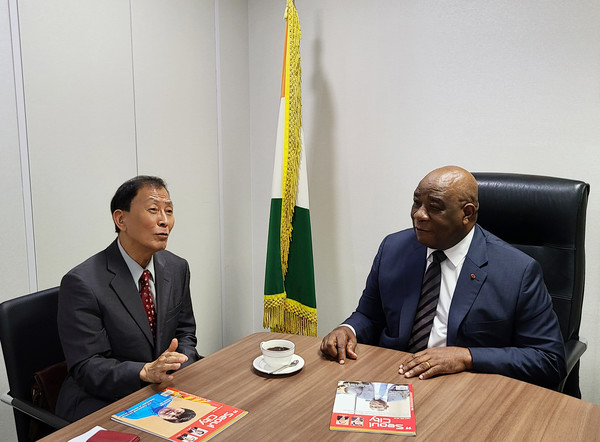
Please introduce main industry and products of Côte d'Ivoire.
The wealth of the Republic of Côte d'Ivoire is mainly based on agriculture. The main agricultural crops in Côte d'Ivoire are cocoa, coffee, cashew, oil palm, cotton and rubber.
These are therefore the main agricultural products of Côte d'Ivoire, which also exports fruit products and minerals (gold, diamonds, Nikel, etc.)
As far as industries are concerned, my country has them for the processing of certain products, but this sector is still underdeveloped. Côte d'Ivoire still exports a good part of its raw materials in their raw state. This is why the support of all external partners is desired to help Côte d'Ivoire to build an industrial fabric capable of transforming all its agricultural and mining materials, with a view to improving its gross domestic product and the standard of living of its people.
Please introduce investment environments of Côte d'Ivoire for potential Korean investors.
Côte d'Ivoire is above all a hospitable country open to the outside world with more than 22% of foreigners on its territory. The Ivorian authorities have set up specialized structures to support and supervise investors wishing to invest in Côte d'Ivoire.
Thus the Center for the Promotion of Investments in Côte d'Ivoire (CEPICI) is the One-Stop Shop for investment in Côte d'Ivoire. To this end, it federates, coordinates and rationalizes all government initiatives and actions in the area of investment promotion and private sector development. This center makes it possible to centralize the procedures relating to the creation of a company in Côte d'Ivoire, with a view to simplifying the procedures.
Côte d'Ivoire adopted a new investment code on August 1, 2018, which aims to promote sustainable development by promoting productive and socially responsible investments. It aims to further support industrialization and devotes an entire section to the promotion of employment and local production. This provides for tax credits for the benefit of companies operating in the priority sectors of the National Development Plan (PND) and additional tax credits of 2% for foreign companies whose employees of Ivorian nationality represent 80% or more of their total workforce. The same facility is offered to any operator who subcontracts with national companies for the execution of infrastructure works, software and the manufacture of spare parts.
This code provides for three dispute resolution methods.
First, an amicable settlement procedure is provided for. The transactional agreement that may result, specifies the code, will serve as law for the parties who will endeavor to execute it as soon as possible. The possible violation of this agreement could be sanctioned under civil liability.
Then, failing to reach an agreement following this amicable procedure within a maximum period of twelve months, the regulations of the United Nations Commission for Commercial Law (UNCITRAL) on conciliation apply.
Finally, the parties can always, according to the new code, "agree to submit their dispute for settlement to the Arbitration Center of the Common Court of Justice and Arbitration [CCJA] of the Organization for the Harmonization of Business Law in Africa [OHADA]”.
The new code provides that a choice adopted by the investor implies the renunciation of any other arbitration offer. This innovation introduces an irrevocable option clause (fork in the road) inserted in certain investment treaties.
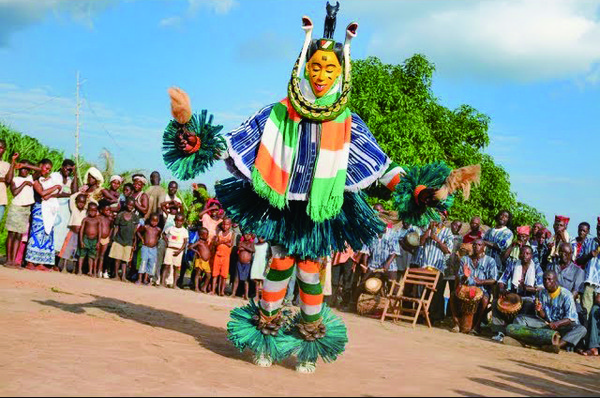
Please introduce Outstanding Korean companies' activities in Côte d'Ivoire.
The Korean companies established in Côte d'Ivoire are as follows:
- Hyundai Engineering and Construction Co.LTD.
- Korea Electric Power Corporation(KEPKO)
- Halla Corporation;
- Dongsan Engineering;
- Jaewon Industrial Co.LTD and
- hyundai Rotem.
Hyundai Engineering and Construction Co.LTD, Korea Electric Power Corporation (KEPCO) and Halla Corporation participated in the construction and improvement of the capacities of these AZITO, CIPRE 4 and ABATTA thermal power plants.
Dongsan Engineering;
Samsung C&T Corporation.
In the field of electronics and automobiles, the companies Samsung, Hyundai and Kia have established themselves by achieving the best sales and are now strengthening their leadership in Côte d'Ivoire.
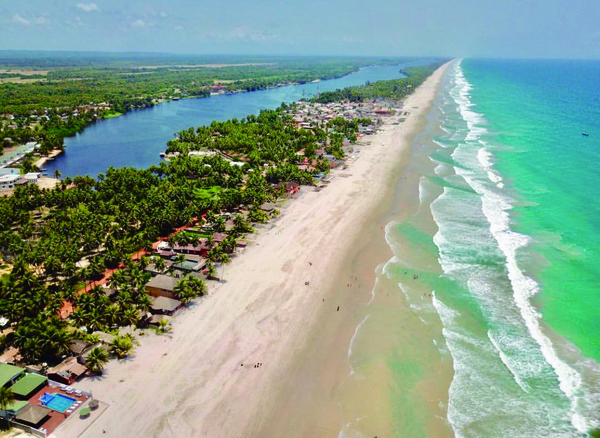
Please introduce Tourists' attractions in Côte d'Ivoire for Korean tourists abroad.
Côte d'Ivoire is a hospitable country with an ideal climate, pleasant relief with preserved fauna and flora, which has many assets making different kinds of tourism possible, namely: cultural and traditional tourism, seaside tourism, business tourism, ecotourism or green tourism and gastronomic tourism.
In addition, Côte d'Ivoire has one of the most developed road networks on the continent, which connects major cities from north to south and from east to west.
Cultural and traditional tourism
Côte d'Ivoire has always given pride of place to its culture and traditions. The four major cultural areas (Akan, Gur, Mandé and Krou) are home to around sixty ethnic groups. Each has unique customs, initiation rites and dances. More than sixty different ethnic groups live in Côte d'Ivoire, each with their own beliefs, traditions and culture. It is possible to meet them, especially since the Ivorian villages are naturally welcoming and hospitable.
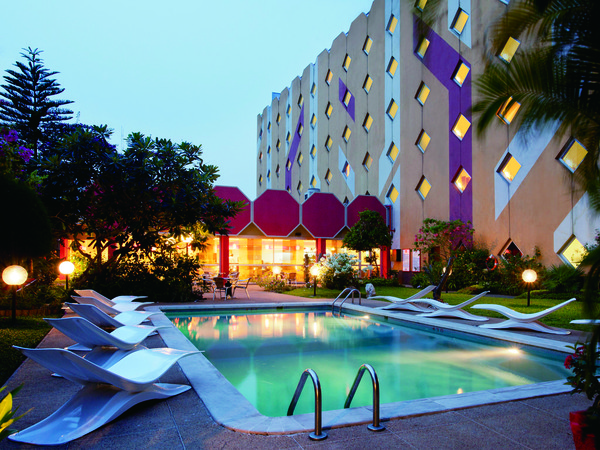
Seaside tourism
With its 520 km of coastline bordering the Atlantic Ocean: fine sandy beaches, coconut palms, cliffs, lagoons for swimming, surfing, sport fishing and sailing, Côte d'Ivoire is a destination perfectly suited to seaside tourism. The towns of Grand Bassam, Assinie, Jacqueville, San-Pédro and Grand-Béréby are the main seaside tourist destinations in the country. From the luxurious resorts of Assinie in the East to the beaches of Grand-Beréby ranked among the most beautiful in West Africa, the 300,000 ha of lagoon water (the largest in the world) offer visitors unforgettable and unparalleled moments.
Business tourism
One of the hubs of the West African economy, Côte d'Ivoire is the ideal place for business trips. With its many centers equipped to host conferences, seminars, conventions and other corporate events, the cities of Abidjan and Yamoussoukro attract the majority of businessmen and women from the sub-region and around the world. Thanks to its modern infrastructure (hotels, airports, road networks, etc.), Côte d'Ivoire is a favorable country for business tourism.
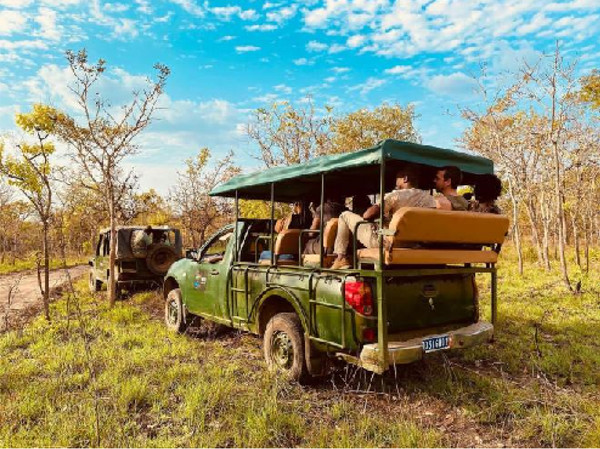
Ecotourism or green tourism
This type of tourism is centered more on the discovery of nature. With 8 National Parks, 6 nature reserves, millions of hectares of forests in the southern part, a savannah region in the north, its mountainous area in the west, Côte d'Ivoire is a true paradise for nature lovers. ecotourism and adventure tourism. Between the national parks and the many nature reserves in Côte d'Ivoire, it is the ideal destination for anyone who wants to do ecotourism. With its beaches, its lakes, its forests, its steppes or its savannah, Côte d'Ivoire benefits from very different landscapes in which lives a varied fauna (elephants, pygmy hippopotamus...) that it is possible to discover through a safari for example.
Gastronomic tourism
Gastronomic tourism is a type of tourism that results in the fact of associating cuisine and travel with the aim of discovering the history and know-how of a country (a region) through its culinary specialties. Thus, thanks to its cultural diversity, Ivorian gastronomy is renowned in West Africa as one of the most diverse and tasteful. Like alloco, garba, Attiéké with chicken or fish Kédjenou, Gouagouassou, foutou with seed sauce, to name a few, are very popular with tourists.
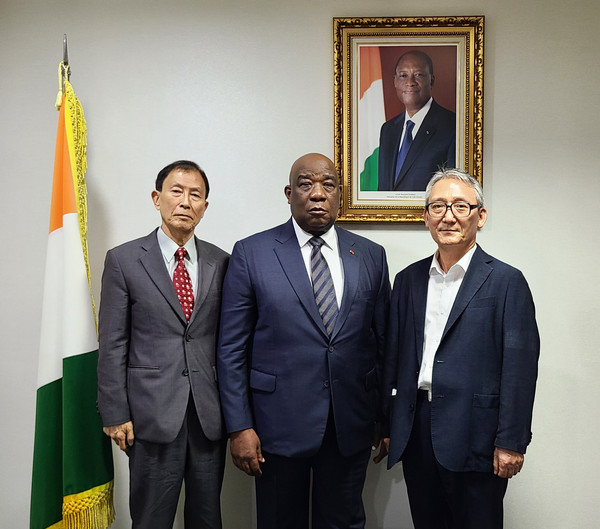
Please let us know your point of view on how to strengthen further the economic and cultural ties between Korea and Côte d'Ivoire
Cooperation between Côte d'Ivoire and the Republic of Korea dates from July 23, 1961, unfortunately it has not yet started to take off in view of the potential of the two countries, certainly because of the remoteness and language.
However, the development of technology has lowered the barriers that prevented this cooperation from blossoming.
The State visit to the Republic of Korea by HE Mr. Alassane OUATTARA, President of the Republic of Côte d'Ivoire in 2014 has somewhat boosted this cooperation. I have faith in a bright future between these two nations, in view of the ratification on June 10, 2022 of the framework agreement for cooperation in mutual development assistance between the Government of the Republic of Côte d'Ivoire and the Government of the Republic of Korea.
This agreement will form the basis of this relationship and will therefore promote the development of mutually beneficial cooperation projects.

